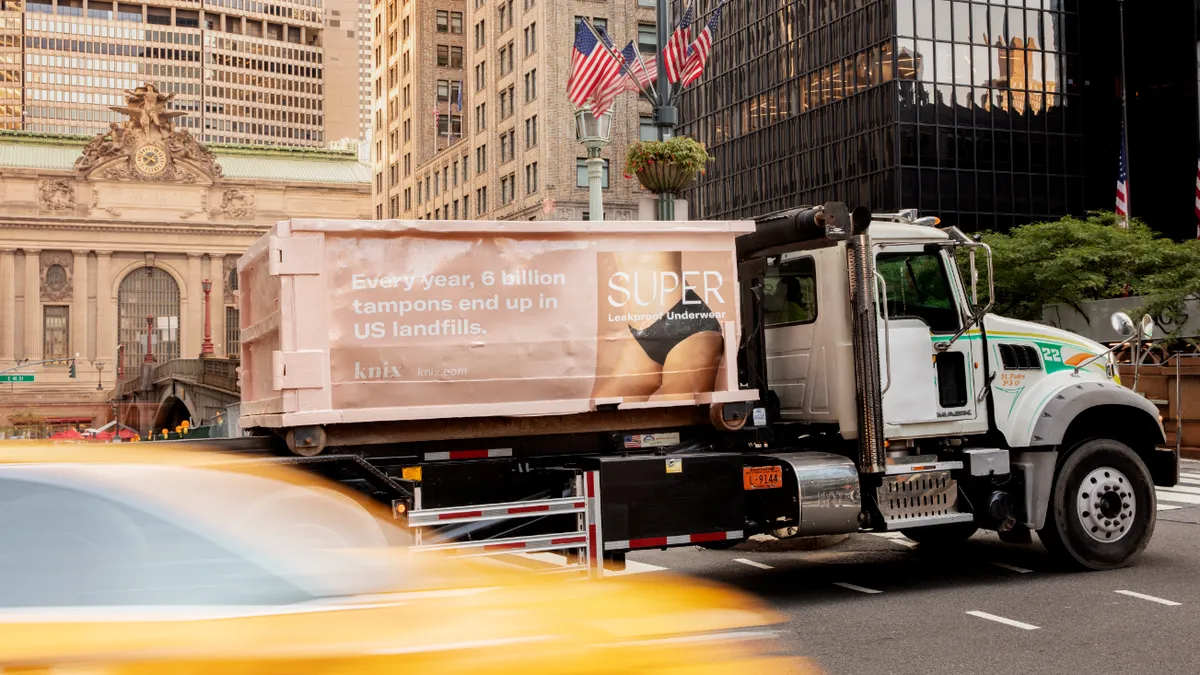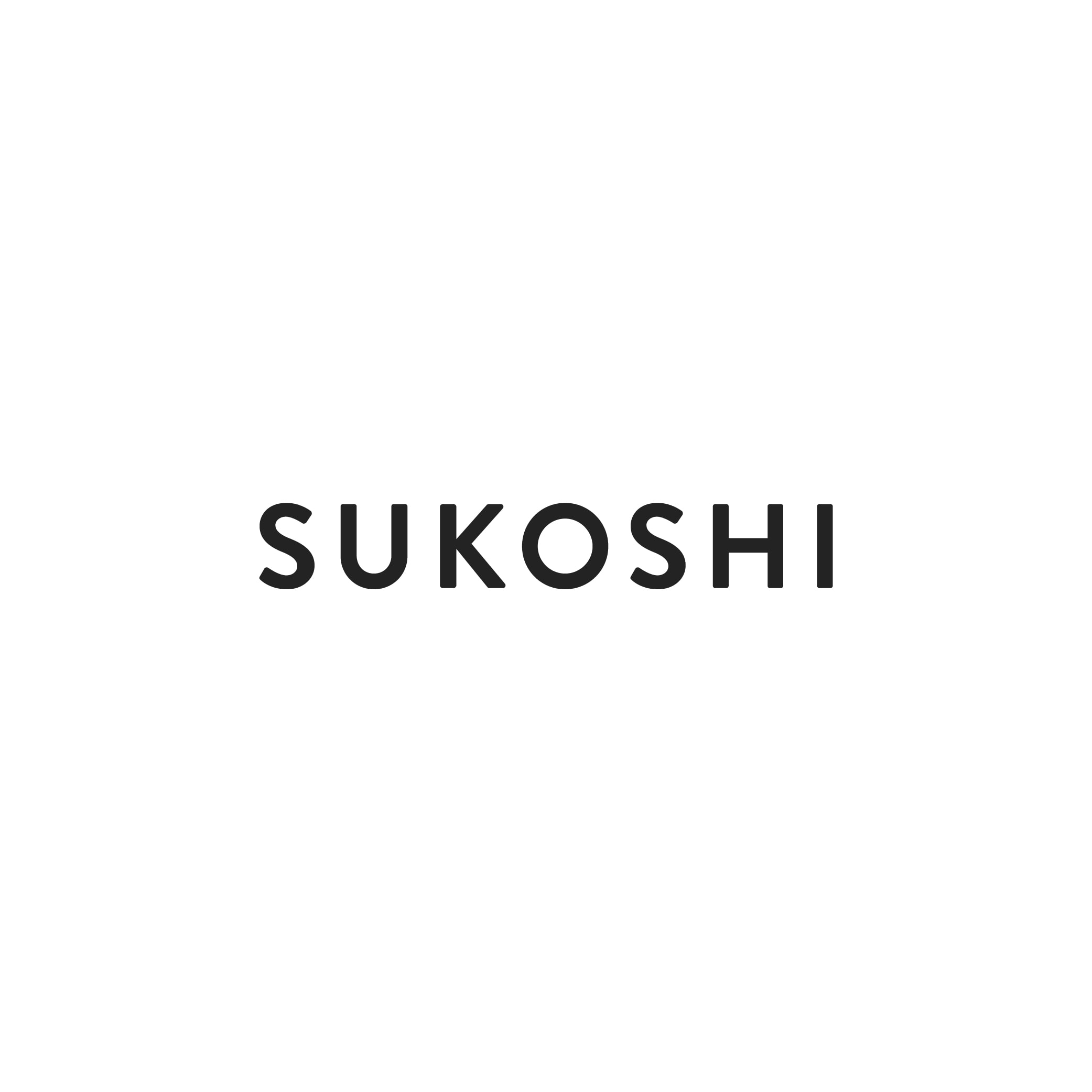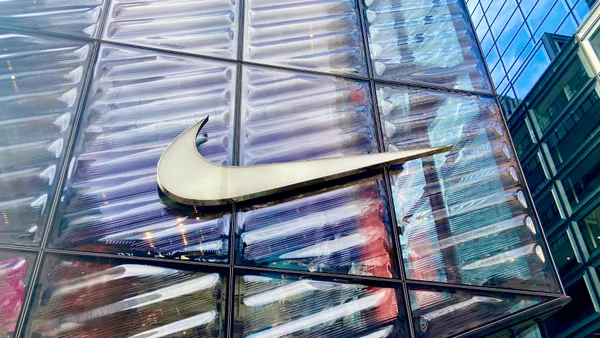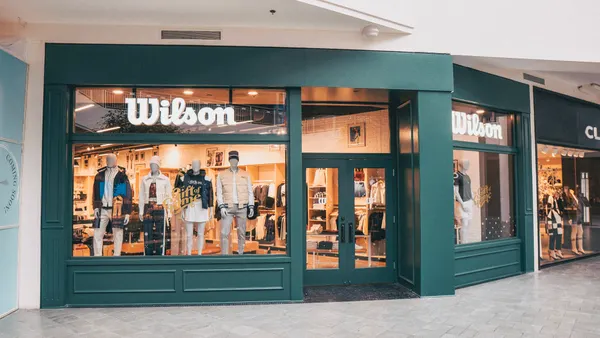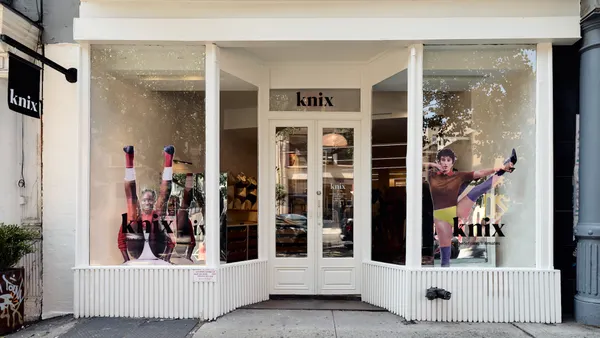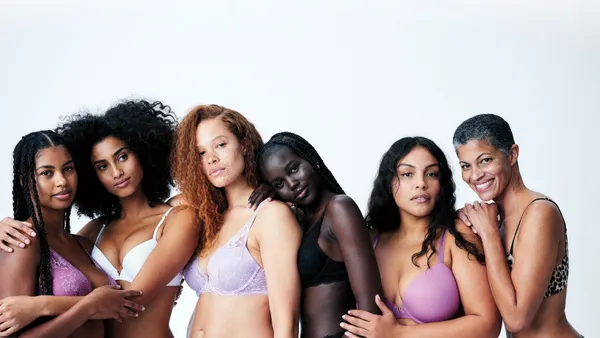Dive Brief:
- Intimates DTC brand Knix has closed on a $40 million funding round led by private equity firm TZP Group, which received a minority stake in the company, according to an emailed release.
- Existing investors including Acton Capital and a new investor, the model and entrepreneur Ashley Graham, also contributed to the funding round.
- Knix said the new investment round will support product innovation, brand building, its virtual fit program and expanding its North American retail fleet, though it did not disclose specific real estate plans.
Dive Insight:
Knix entered its latest funding round with major growth behind the brand, which says it sells 2 million pairs of underwear a year and touts its patented leak-proof products across the intimates category. According to the company, it has a five-year average annual growth rate of 150%, is "highly profitable" and will soon surpass $100 million in revenue.
The pandemic only fueled Knix's growth, founder and CEO Joanna Griffiths told Retail Dive in June last year. In May 2020, in the midst of widespread chaos in retail, Knix saw its most successful sales launch in the company's history when it debuted its swim category.
In Knix's own words, the brand has traded large funding rounds — which could fuel fast expansion — for profitable growth. It has also changed strategies as it's gone along. In 2016, the company changed from a wholesaler to DTC brand, pulling out of 700 third-party retail stores in the process.
That was a "turning point for Knix that led to just shy of 4000% three-year growth," Griffiths said in the release. "We made that choice by listening to our customers and understanding how they wanted to shop and interact with us as a brand."
But as the company is looking to release more products, add stores and ramp up its marketing, it opted to raise more money to fuel that growth.
With the brand on the rise, Knix is among the players in intimates picking apart the Victoria's Secret juggernaut that long dominated the field. While still an enormous presence, Victoria's Secret — which, for now, is owned by L Brands — has been flanked in recent years by upstarts, established DTC brands and rival retail players.
Many of those brands make a competitive advantage out of inclusion and female ownership, while Victoria's Secret has been plagued by historical marketing that leaned heavily on sexualization, as well as product styles that fell out of favor with consumers focused on comfort and practicality.
In recent quarters, however, the brand has generated sales growth. And once Victoria's Secret's trajectory became starkly clear, the brand took steps to reshape its image, including pulling its runway show, previously one of its hallmarks.



